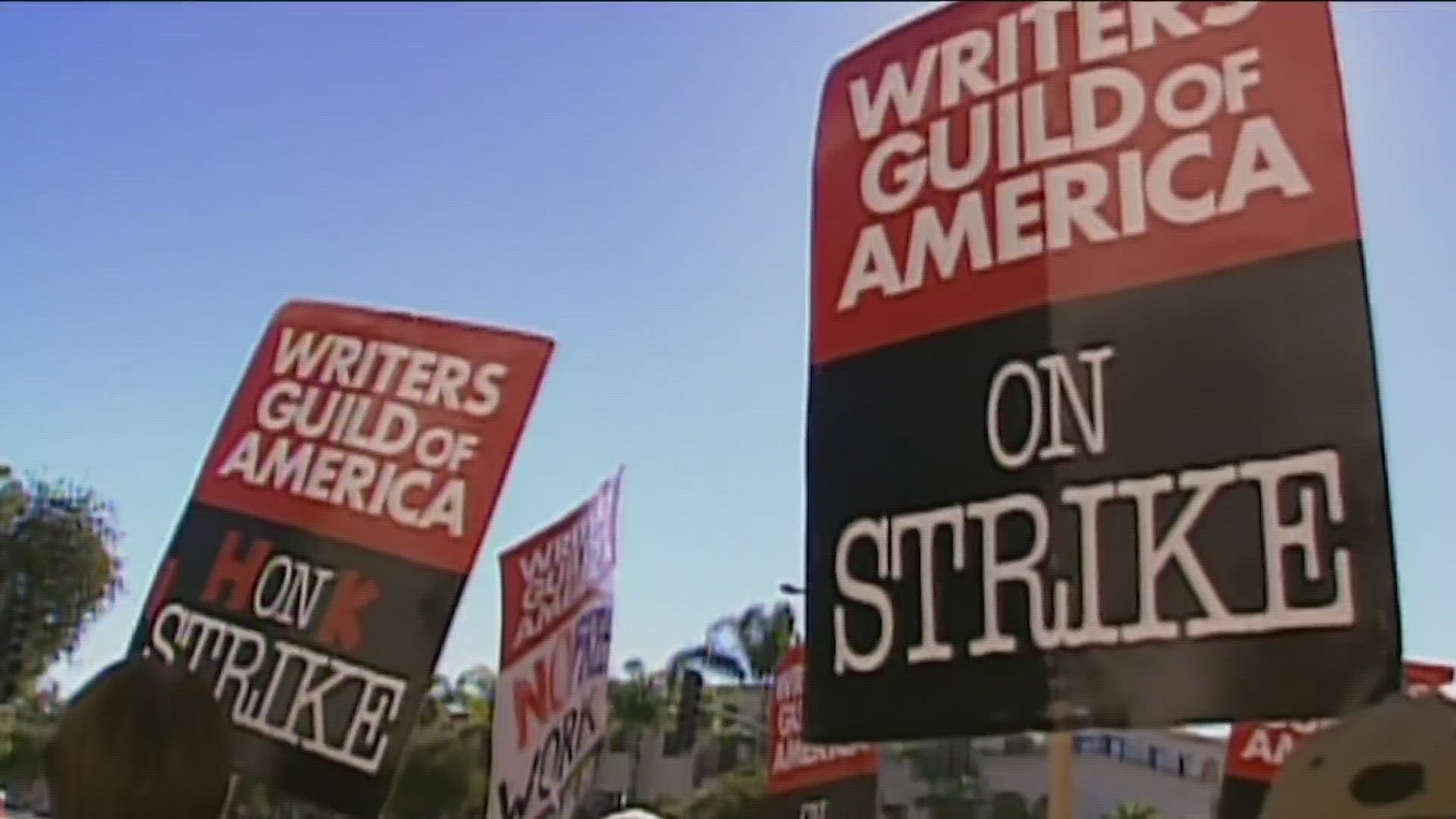ATLANTA — Movie and TV productions in Georgia are now coming to a halt, as the Hollywood writers' strike continues.
Writers from the Writer's Guild of America are responsible for a plethora of shows and movies that film in Georgia, including Netflix's "Stranger Things."
"Stranger Things" final season was set to start filming in June, but now, it's been delayed due to the strike. And depending on how long the strike goes, many more productions could also be pushed back.
Writers, like Chad Darnell, have been "putting down the pens" around the country.
"The most frustrating part about this entire strike is that the AMPTP (Alliance of Motion Picture and Television Producers), the producers— they don't understand what it's like to be a writer," Darnell said.
Darnell said they're asking for protections against the use of artificial intelligence.
"The AMTP has come back and said, 'Well, we can talk about it once a year,'" Darnell said. "Well, that doesn't help because, right now, my book could be used as source material for an AI bot. And I won't get compensated for that. They could choose to make an entire script out of an AI— hire a writer to humanize it. And that's not fair."
Writers are also asking for viewership transparency from streamers, fair compensation, and protections against mini-rooms.
"The mini room is where the writers and the showrunner break the story down," Darnell explained. "They want to map out the character arc for the characters. They want to map out the plot for the season...And everybody who's writing an episode has to be on the same sheet of paper."
"Stanger Things" creators Matt and Ross Duffer tweeted about shutting down production.
Another Atlanta production stopped for this Summer is Marvel's "Blade" movie.
University of Georgia media and entertainment professor Kate Fortmueller explained just like the writer's strike 15 years ago, when the internet changed everything, streaming has changed the culture.
"For writers to be having all of their stuff on streaming and sort of getting a fragment of the money that studios and networks are making," Fortmueller said.
Fortmueller said Georgia stands to see COVID-sized impacts.
"If the writers aren't writing, if the showrunners aren't coming to work, then nobody's coming to work," Fortmueller said.
And the strike affects not only talent, but make-up artists, costume designers, and other crew members who also depend on that money.
"Fair means that the AMPTP, and the writer's guild, or whatever union is going to be negotiating, because we're all in the same boat here, is that we're being compensated fairly for the work that we're doing," Darnell said.
"For viewers at home who are thinking about how much they like watching things, how much they enjoy a limited series or a six-episode series, or how much they enjoy the convenience of watching quality, great shows on streaming on-demand at any time; when you think about what you like about that as a service, I think it's important to acknowledge that probably part of what you like is the quality of that programming," Fortmueller said. "And that quality is the writing. And if you want shows to continue to be good, compelling dramas, then you should want those people to get paid."

